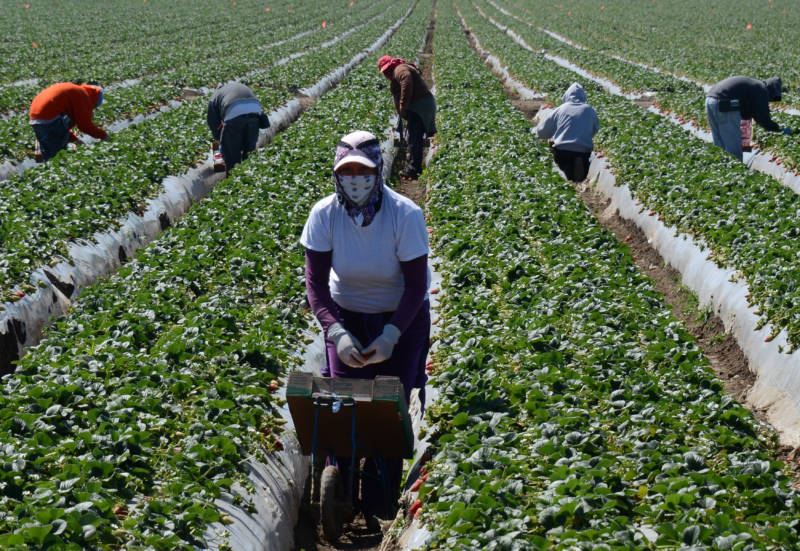California Gov. Gavin Newsom pledged Friday to do more to protect farm workers, grocery clerks and other essential workers — many of whom are Latino — from the health and economic harms of the coronavirus as the infection spreads through their communities.
“Not enough focus, candidly, has been placed on essential workers in this state,” Newsom said during his daily news conference.
Among Newsom’s plans: Provide temporary housing for infected workers who need to isolate from their families; expand paid sick leave and workers compensation benefits; expand a state public awareness campaign around mask usage; give new guidance to employers and require them to report outbreaks of the virus to their local health departments.
